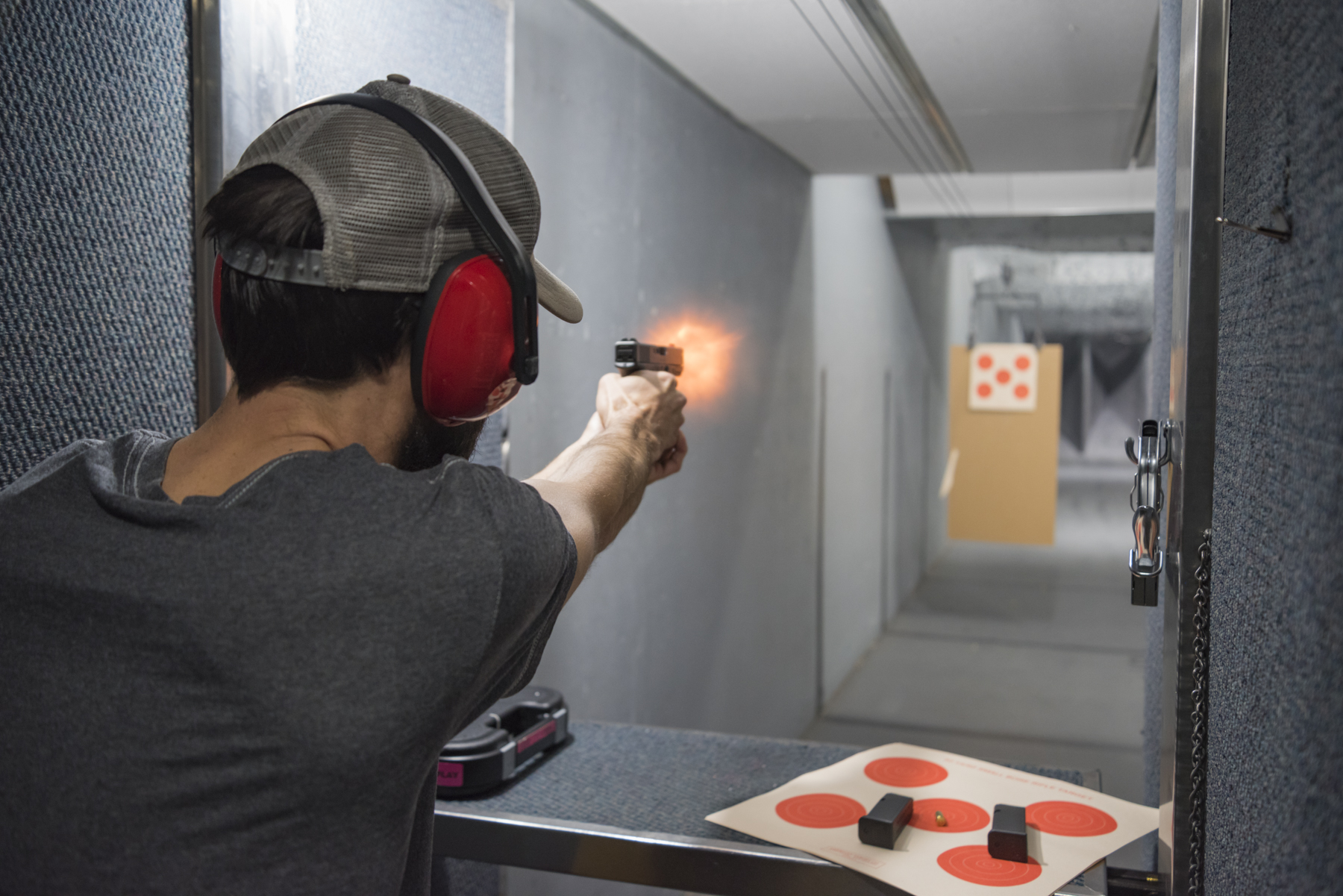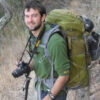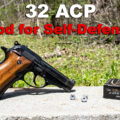Getting a concealed carry permit is a big step for a lot of shooters and isn’t a responsibility that should be taken lightly. In this guide, Taylor will walk you through some things to consider when looking at getting a CCW and what his process was like.
There are 33 states in the U.S. that allow citizens to obtain a CCW (Carrying a Concealed Weapon) license. Each of these states
has their own unique laws for allowing their residents to obtain a CCW. Moreover, each county within those 33 states has its own process that residents of that county must follow and fees to be paid in order to obtain a CCW. Some states recognize another state’s CCW license, some do not.
In this article, I will discuss some reasons as to why a person would want to obtain their CCW and the CCW process specific to my personal experience in Denver County, Colorado. I will also discuss the required firearms training course that I completed to obtain a CCW, and the benefits of taking a firearms training course and acquiring handgun use experience regardless of whether you are pursuing a CCW or not.
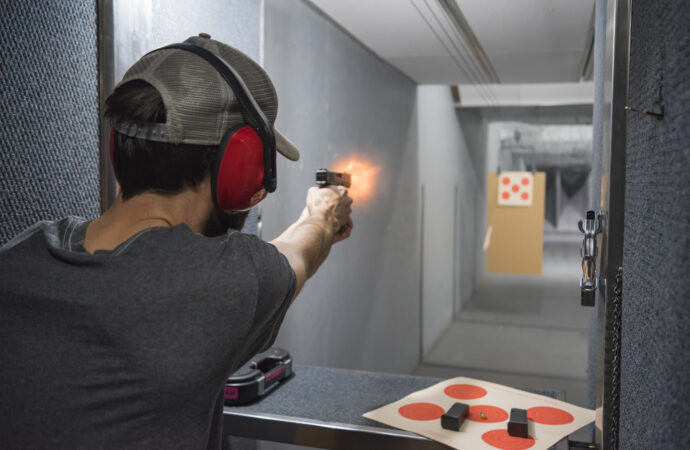 While there are some differences between each state and county that have laws permitting a CCW, all seek to support “…the right of the people to keep and bear arms,”, as written in the Second Amendment in the Constitution of the United States of America.
While there are some differences between each state and county that have laws permitting a CCW, all seek to support “…the right of the people to keep and bear arms,”, as written in the Second Amendment in the Constitution of the United States of America.
A Personal Decision
The decision to carry a firearm is absolutely a personal one. While there are some obvious reasons for obtaining a CCW; personal protection of one’s self, their loved ones, and their property; Each person leads a different life in different environments and feels differently about how and when they need to provide protection using a handgun. The decision of when, why and what to carry as it relates to firearms is one you’ll have to make for yourself.
Some people may feel they need personal protection quite often, if say their professional industry requires them to put themselves at risk on a regular basis. Others may occasionally feel the need for personal protection, such as while traveling alone cross-country, or while attending events with loved ones in a high crime area.
Whatever the reason an individual may have, a CCW allows a person to legally provide personal protection with a firearm for themselves, their loved ones, and their property in many situations that otherwise they would not be able to. Open carry of handguns, being able to carry a handgun in the open in public, is not restricted by federal law, except on some federally restricted properties. There are however, 5 states that ban open carry completely, and 15 states that require obtaining an open carry license, as of 2016. Obviously, open carry does not allow for the privacy that having a concealed handgun does. There are several types of firearm licenses across the country that a person can obtain, again depending on the state you reside. One these licenses is obtainable for retired law enforcement official known as a LEOSA (The Law Enforcement Officers Safety Act) permit.
This license gives retired law enforcement officers the ability to continue to protect the public after retirement. The CCW process for Denver County, Colorado is unique onto itself. There are several steps a resident of the county must follow in order to obtain their CCW including a local and FBI background check. Below, I have listed these steps in chronological order based on my experience during this process.
The Steps I Took Toward My CCW
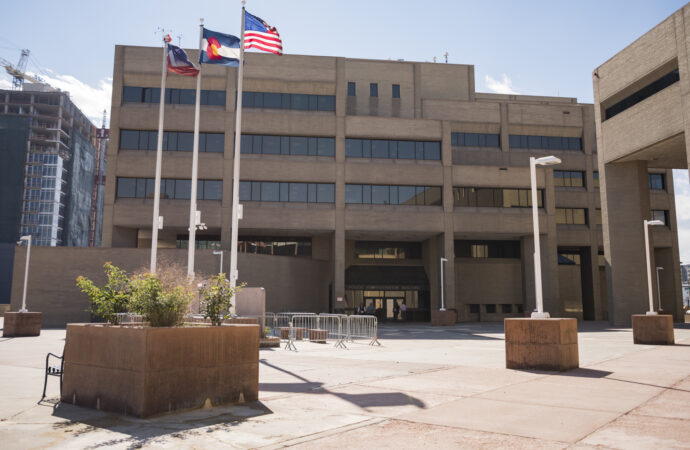
You do not have to own a handgun in order to receive a CCW in Denver County Colorado. Though, in order to use your CCW for personal protection, it seems obvious that owning your own handgun is necessary. I purchased my handgun at a major firearm brick and mortar retail chain. Here, I first had to perform a computer-based questionnaire by answering a series of questions pertaining to my citizenship, residency, criminal record, drug and alcohol use, and mental health record. Only after having answered these questions to the satisfaction of the law was I able to have a background check done, where my personal information was sent by the retail company to a government agency to be cross checked and processed. I was allowed to purchase the handgun after passing that background check.
Next, I found a local firearms training course online that only covered the required classroom taught topics for obtaining a CCW. While many states require a live-fire course and test along with a classroom test in order to obtain your CCW, Colorado Counties does not.
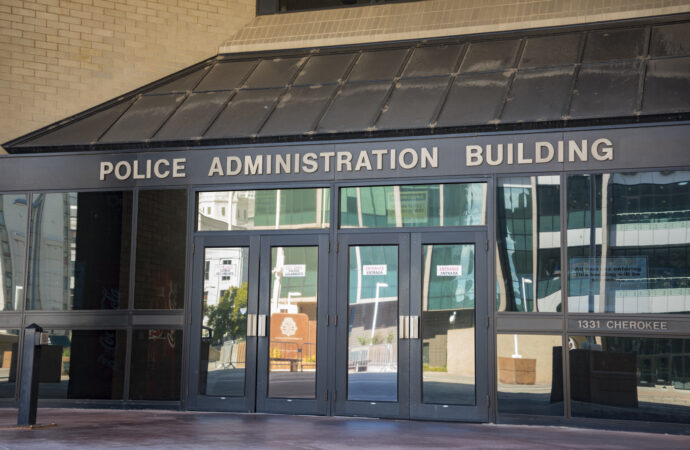
A live-fire test does not require you be a quick-draw sharp-shooter. The test aims to make sure you are able to handle a handgun safely and without complacency, so you don’t get nervous if and when it comes time to use the firearm.
Already having years of live-fire handgun experience, the classroom course was all I felt I needed. Those who have no experience or training with firearms and more specifically handguns, should enroll in a more in-depth course that also provides live-fire training. The classroom only course I attended cost $65.00, was 3 hours long, and was taught by a licensed instructor. After receiving my firearms training certification I was able to move to the next step. I will discuss more details about this firearms training course later in the article.
With the required CCW application, firearms training certificate, Colorado Driver License, proof of residency, and the $152.50 money order for fees, I visited the CCW office at the Denver Police Department to finalize the CCW application process.
At the police department, I signed my application under supervision of the CCW application officer, provided fingerprints for a thorough background investigation, and had a photographed head shot taken of me for my CCW ID card. With all of these things done I had now finished the CCW application process, and had to wait a maximum of six weeks to be notified if I passed the background investigation.
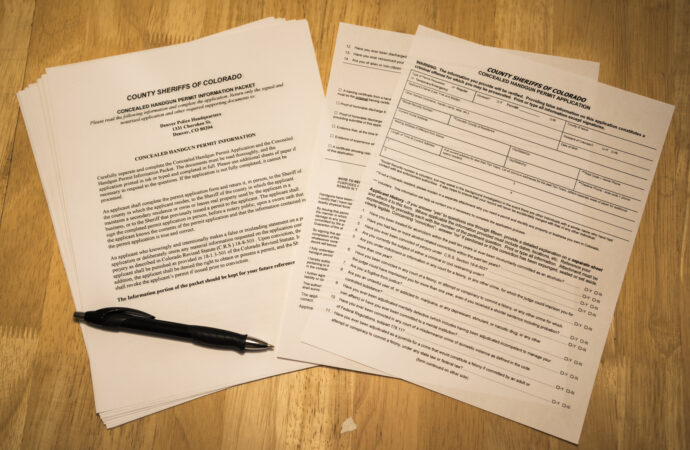
In many states the process for obtaining your CCW can be much more difficult than here in Colorado. Some states even require that you receive the explicit “permission” of the local sheriff in order to obtain your CCW. This may not seem like a big deal to some, but for someone that lives in a smaller or rural community, this could potentially lead to the infringement of someone’s Second Amendment rights.
Lengthy bureaucratic processes and leaving the judgement for obtaining your CCW to only one person are some of the reasons why Second Amendment supporters and organizations may have frustrations with the CCW process and firearm laws in general.
Things To Consider Before You Start
To obtain a CCW, you should first know the basics of handguns, and more importantly have experience using handguns. In Colorado, only a classroom setting firearms training course is required by law to obtain a CCW. You do not have to have a live-fire training course with a handgun, such as at a shooting range, or have any experience using a firearm whatsoever. This may be surprising to some, especially to those of us that have a long experience using firearms, especially handguns. Knowing the basics of handguns is important, such as knowing the difference between revolvers and semi-automatics, ammunition power vs. capacity, considerations in purchasing a handgun, and the fundamentals of gun safety. However, hands-on experience using a handgun is something that cannot be substituted with just classroom instruction.
What Does a CCW Training Course Cover?
The content covered in the required firearms training course in Denver County, Colorado includes:
- Firearm Safety Rules and Overview
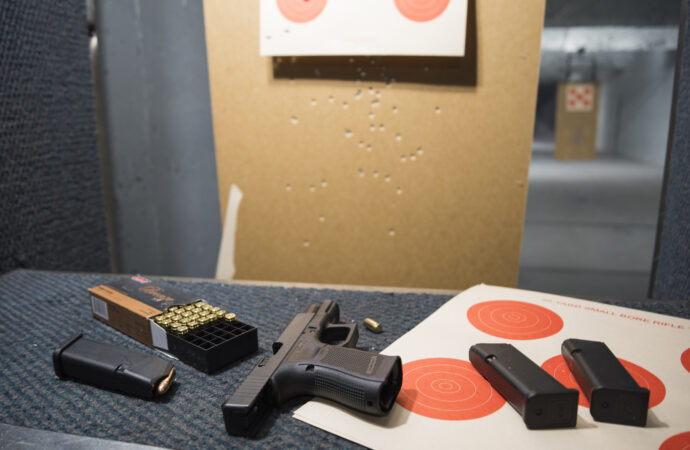
- Firearms Safety Concerns with Children
- Handgun Basics and Mechanics
- Firing Stances & Malfunctions Clearing
- Firearm Accessories
- Firearm and Ammunition Storage
- Concealed Carry Holsters & Techniques
- Colorado Gun Ownership Laws
- Colorado Concealed Carry Laws
- Colorado Justifiable and Physical Force Law
Even if you have no intention of obtaining your CCW, enrolling in a firearms training classroom course and a live-fire training course at a shooting range is something that all firearm users should do. The information that a person receives from the classroom is irreplaceable and learning from a trained instructor with years of experience is hard to beat. Even the most avid and experienced firearms user will take away new knowledge, be reminded of firearm safety practices, and acquire a fresh understanding of things they may have forgotten. Additionally, firearm laws are themselves very detailed, and can occasionally change. A knowledgeable licensed instructor will be aware of these updated laws and will share them with you during your course.
Even if you are not new to firearms, it is wise not becoming too comfortable in the idea that you know everything there is to know about firearms. Becoming too comfortable can lead to complacency, and complacency is a firearms user worst enemy.
There is a lot more that goes into obtaining your CCW that may not seem obvious. This is where your firearms training instructor can provide something new for you to learn.
My instructor specifically had access to a lot of new products pertaining to handguns and pistol accessories, such as various types of conceal style holsters. He also had training tools such as at-home laser guns and digital target systems, which can be used to practice draws and target shooting at home while away from the range.
Besides having access to tools of the trade, my instructor also had a lot of access to real world experience and first-hand accounts where concealed firearms were used. Having access to these stories and being able to discuss them with other people in the class during training was a valuable takeaway.
Having a CCW is a huge responsibility and also a freedom that shouldn’t be taken for granted. The first step in obtaining one is knowing why you want to pursue obtaining your your CCW. Of course having your CCW is a right, but you should still have a strong understanding as to why you need one and when it will be a benefit for you to use for protection.
The CCW process is not a short one, but it is a must for anyone that wants to obtain their license. A firearms training course is beneficial, even if you are not obtaining a CCW and a attending a live-fire training course is even more important for those that don’t have experience using a firearm. Knowing how to obtain the proper permits for owning a firearm can be just as important as knowing how to use it, so be responsible and stay informed.

